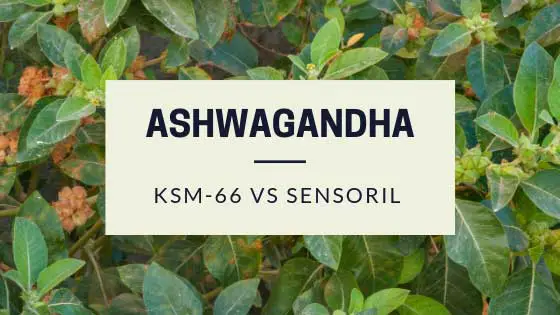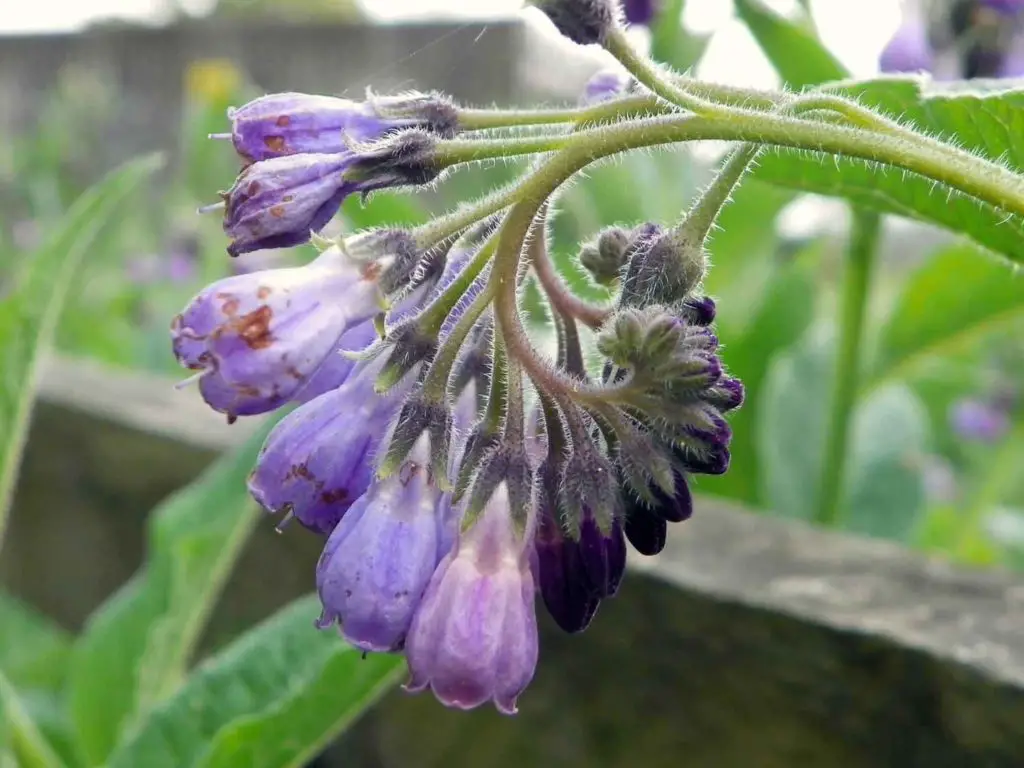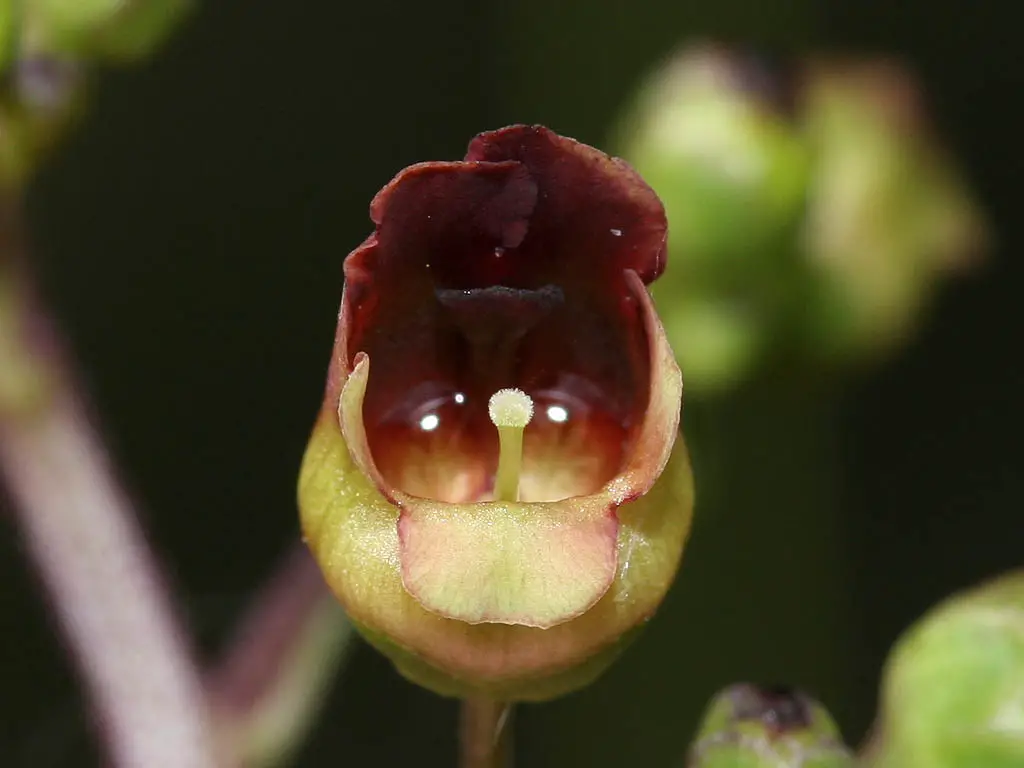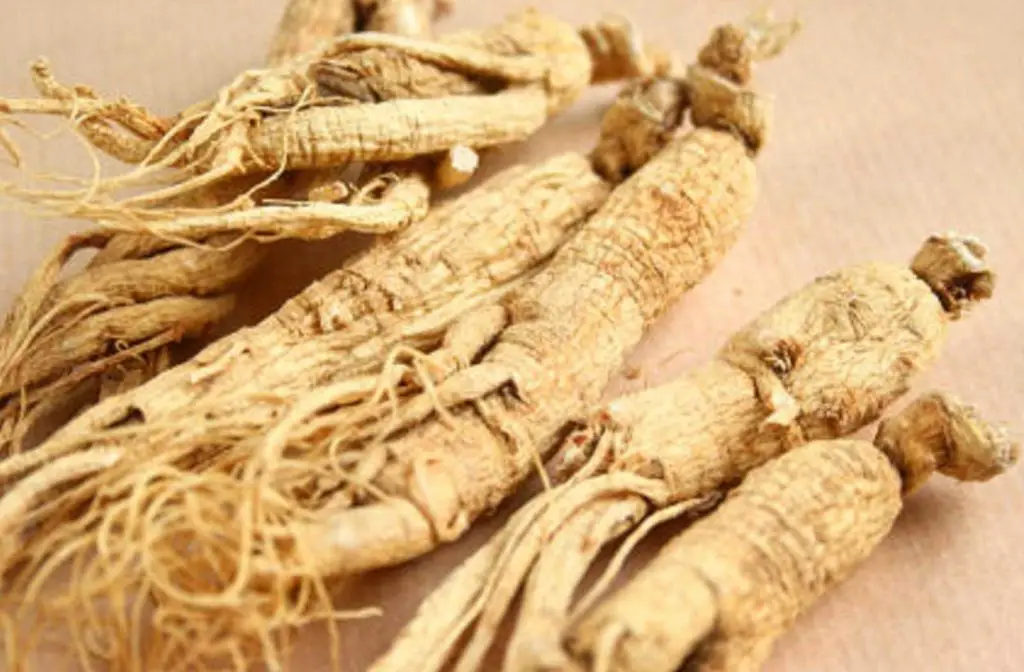Ashwagandha (Withania somnifera), also known colloquially as Indian ginseng or “winter cherry,” is an evergreen herbaceous shrub endemic to India and parts of the Middle East and Africa. Common in Ayurvedic medicine, ashwagandha is said to have physiological and cognitive health benefits ranging from treatment for infertility, an anti-inflammatory, an adaptogen, and more.
Before deciding to buy ashwagandha, make sure to know more about the benefits and contraindications of Ashwagandha.
Sensoril vs KSM-66 Ashwagandha
Sensoril and KSM-66 each refer to branded ashwagandha supplements. Both medications utilize water-based extraction methodologies that diminish the bitter taste of the herb for the purposes of easier ingestion. Most importantly, both patents have undergone extensive clinical testing in order to verify the efficacy of their products. Sensoril and KSM-66 are among the best-selling ashwagandha supplements presently on the therapeutic market.
Sensoril®
The ashwagandha supplement Sensoril, a property of Natreon Inc., boasts anti-stress, anti-hyperlipidemic, and anti-inflammatory properties. Sensoril has been on the market for approximately a decade and has been clinically tested in a series of double-blind, placebo-controlled human trials. In one of the most recent and notable studies in 2014, twenty healthy male subjects received two 25 mg capsules of Sensoril (versus a placebo control group) for fourteen days. The results, which were published in Pharmacognosy Research, indicated that Sensoril was well-tolerated and yielded significant psychomotor and cognitive benefits in research subjects. The study was particularly significant in that it indicated overall cognitive improvement in healthy, normal subjects.
Sensoril is extracted from the root and leaves of the ashwagandha herb. The product contains a minimum of 10% withanolide glycosides (the primary bioactive of Wiithania somnifera), 32% oligosaccharides, and a maximum of 0.5% free withanolides. Sensoril is purported to support memory, executive function, attention, and cognitive psychomotor performance. It is also a neuroprotective, and inhibits neuronal mitochondrial swelling and apoptosis, as well as neurotoxicity. Sensoril’s web site also purports possible lifespan extension effects.
Sensoril’s patented extraction process utilizes hormetic dosing principles. Hormesis is a term utilized most often in toxicology, and it refers to a biphasic dose response to an environmental agent characterized by low dose stimulation or beneficial effects and a high dose inhibitory or toxic effect. In medical biology, hormesis can be understood as an adaptive response of cells and organisms to moderate stress, such as regular exercise. In terms of dosing principles, this simply means that Sensoril is extracted in such a way that identifies the lowest dose that can produce the optimal desired response. The manufacturers utilize a water-based, branded extraction process that results in a product roughly eight times the strength of standard ashwagandha.
Sensoril has earned GRAS (Generally Recognized as Safe) status by multiple U.S. patents, and is currently one of the best-selling ashwagandha extracts available.

KSM-66
KSM-66 is a full-spectrum ashwagandha extract, which boasts the higher concentration of all major root-only extracts presently on the market. Having undergone innumerable clinical trials, KSM-66 has been clinically verified in its ability to ameliorate stress and stress-related food cravings, promote enhanced memory and cognitive function, and support endurance, strength, and muscle recovery rate. It is the singular medical product of the manufacturing company IIxoreal.
KSM-66 is unique in that its manufacturing strictly avoids the use of leaves. They cite the following reasons for this unusual formula: 1) ashwagandha root consumption has been observed more thoroughly in clinical trials, making it more viable to verify its safety and efficacy, 2) ashwagandha leaves are not indicated in any pharmacopoeias to be effective or therapeutic after ingestion, and 3) regulatory bodies in some European countries only permit the use and ingestion of ashwagandha roots and not leaves.
KSM-66 also boasts a unique and thorough extraction process, one that took a total of fourteen years to refine and which relies on the principles of green chemistry. In other words, the bioactive components of the ashwagandha root are extracted without using any alcohol or synthetic solvents. Further, KSM-66 is a full-spectrum herb, meaning its therapeutic properties maintain the balance of the various constituents of the herb without over-representing any one single part. This is because the efficacy of ashwagandha relies heavily on complex interactions between several constituents in their natural proportions.
KSM-66’s extraction process involves pre-treating the ashwagandha roots with milk. This treatment is based on traditional Ayurvedic practices, but the process has been refined and streamlined by the manufacturers. The milk pre-treatment leads to hydrophilic and lipophilic components of the raw root, which results in extra high potency in the resulting product. However, there is also a KSM-66 version that is milk-free for vegan consumers.

What is the Best Ashwagandha?
Both Sensoril and KSM-66 offer significant potential benefits in terms of mediating stress levels and optimizing cognitive function. Both use water-based, patented extraction processes and have the support of clinical trials backing their therapeutic claims. However, overall KSM-66 offers an generally higher potency factor in its utilization of ashwagandha’s nutritive natural compounds.
It is worth noting that KSM-66 is also the single most clinically tested ashwagandha extract on the market, boasting the highest number of earned safety certifications among ashwagandha-based herbal products. KSM-66 has undergone a rigorous series of inspections and safety assessments for the labels of GMP (USP, NSF, NPA-UL, WHO), 100% USDA Organic, Non-GMO (Non-GMO Project Verified), Gluten Free (by GFCO), BSCG-drug free, Kosher, Halal, and HACCP.
The following are a series of examples of clinical trials indicating KSM-66’s efficacy (several are available for direct access on the product’s web site). In 2017, a group of adults with mild cognitie impairment were treated with KSM-66 over a series of eight weeks. The ashwagandha group demonstrated notable improvements in comparison to placebo in terms of immediate and general memory, executive function, sustained attention, and information-processing speed. The study was published by the Journal of Dietary Supplements. Another study published in 2015 (in the peer-reviewed Journal of the International Society of Sports), subjects treated with KSM-66 indicated significantly greater increase in muscle strength on bench-press and leg-extension exercises, as well as reduction of exercise-induced muscle damage. Other published clinical trials suggest that KSM-66 may be efficacious in terms of cardio-respiratory endurance, stress and weight management, and improved thyroid function.
Further, KSM-66 is the most bioavailable full-spectrum root extract on the market to present day, retaining all the natural constituents of ashwagandha in their original proportions. As such, it presently has the highest percentage of wiithanolides of all branded-root extracts. Withanolides are important as they are chiefly responsible for ashwagandha’s most notable bioactive antioxdant and anti-inflammatory properties. That being said, not all withanolides are beneficial – Withanolide A, for example, is cytotoxic and thus undesirable to have in any supplement. KSM-66, however, has negligible amounts of this particular constituent in comparison to other products.
While Sensoril and KSM-66 are both viable therapeutic herbal supplements with significant clinical backing, in general KSM-66 emerges as the more potent and efficacious product of the two. This is the Best Ashwagandha on the Market.

References:
Ashwagandha. Memorial Sloan Kettering Cancer Center. Accessed online August 2019. https://www.mskcc.org/cancer-care/integrative-medicine/herbs/ashwagandha
Ashwagandha. WebMD. Accessed online August 2019. https://www.webmd.com/vitamins/ai/ingredientmono-953/ashwagandha
Benefits of Ashwagandha. Vital Plan. Accessed online August 2019. https://vitalplan.com/ingredients/ashwagandha
Chandrasekhar K., Kapoor J. & Anishetty S. (2012). A prospective, randomized double-blind, placebo-controlled study of safety and efficacy of a high-concentration full-spectrum extract of ashwagandha root in reducing stress and anxiety in adults. Indian journal of psychological medicine, 34(3): 255–262. Accessed online August 2019. https://www.ncbi.nlm.nih.gov/pmc/articles/PMC3573577/
Choudhary D., Bhattacharyya S. & Bose S. (2017) Journal of Dietary Supplements. Efficacy and Safety of Ashwagandha (Withania somnifera (L.) Dunal) Root Extract in Improving Memory and Cognitive Functions. Journal of Dietary Supplements, 1-14. Accessed online August 2019. https://www.ncbi.nlm.nih.gov/pubmed/28471731
Mattson M. P. (2008) Hormesis defined. Ageing research reviews, 7(1): 1–7. Accessed online August 2019. https://www.ncbi.nlm.nih.gov/pmc/articles/PMC2248601/
Pietcher P. (2016) Benefits of Ashwagandha. Medical News Today. Accessed online August 2019. https://www.medicalnewstoday.com/articles/318407.php
Schultz H. (2014) New study supports Sensoril’s psychomotor benefits in healthy Subjects. Nutra. Accessed online August 2019. https://www.nutraingredients-usa.com/Article/2014/02/05/New-study-supports-Sensoril-s-psychomotor-benefits-in-healthy-subjects
Sensoril® Ashwagandha Withania Somnifera Root and Leaf Extract. Neurohacker® Collective. Accessed online August 2019.
Thompson K. (2018) Ashwagandha (Withania somnifera). Herb Rally. Accessed online August 2019. https://www.herbrally.com/monographs/ashwagandha
Wankhede S., Langade D., Joshi K., Sinha S.R. & Bhattacharya S. (2015) Examining the effect of Withania somnifera supplementation on muscle strength and recovery: a randomized controlled trial. Journal of the International Society of Sports Nutrition, 12(1): 43. Accessed onlinie August 2019. https://www.ncbi.nlm.nih.gov/pubmed/26609282
What is KSM-66? KSM-66 Ashwagandha. Accessed online August 2019.




